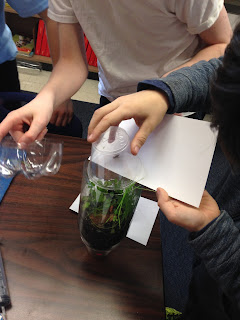Check out the fun we had on Friday during Field Day! A huge thanks to Ms. Eastman and Mr. Kluk for organizing this fun day!
Monday, May 28, 2018
Tuesday, May 15, 2018
Science SBAC
A reminder to families that our class will be taking the Science SBAC test tomorrow and Thursday. We will only be doing morning sessions. The students are allowed to bring sugarless gum or mints on the testing days. Each student will need a pair of earbuds. I have some here at school, however they are not as comfortable as some others out there.
This is a lot of testing! Please try to make sure your child gets plenty of sleep. A good breakfast can also be very helpful to fuel them through the morning!
There will be no homework on testing days.
This is a lot of testing! Please try to make sure your child gets plenty of sleep. A good breakfast can also be very helpful to fuel them through the morning!
There will be no homework on testing days.
Friday, May 11, 2018
Unit 7 Math Test
The Unit 7 math test will be next week. The following skills will be assessed:
- Multiplying mixed numbers by fractions, whole numbers, and mixed numbers
- Finding the areas of rectangles with fractional side lengths
- Using common denominators to divide fractions
- Using categories and subcategories to think about properties of shapes
- Classifying figures in a hierarchy
- Using rules to continue patterns and write rules for relationships in in/out tables
- Writing ordered pairs from a table and graphing the points
Monday, May 7, 2018
Ecosystems
Many of our ecocolumns have gone home! If you are a recipient of one, thank you! During the past month we learned a lot watching our ecocolumns thrive under our care! We had live organisms such as mosquito fish, snails, duckweed, and elodea in our aquariums, and crickets, isopods, rye grass, alfalfa, and mustard seed in our terrariums. We connected the two in order to simulate a natural pond ecosystem similar to one we might find here in Vermont. We learned about how a healthy ecosystem is self-sustaining with no human interference. Therefore, we didn't take the dead or decaying matter out of our ecocolumn. In nature we don't remove these things. We learned about how nature handle such things. For example, there were scavengers (the clean up crew) such as snails in the aquarium. We also learned all about producers, consumers, and decomposers, and watched them at work in our ecocolumns.
We are currently learning about the Chesapeake Bay ecosystem, and all the problems it is facing. The students in the class have been divided up into five different groups that live or work in the Chesapeake Bay area. These groups include dairy farmers, fishermen (watermen), recreational boaters, land developers, and ordinary citizens. The students are learning about how their group is contributing to the problems in the Chesapeake Bay, and they are coming up with solutions to the problems. They are learning that there are quite a few trade offs though. What might be good for the health of the bay's ecosystem, may not at all be good for their group's livelihood. Each group will present their findings to the 'Chesapeake Bay Environmental Board'. Stay tuned....
Ask your child about their group and how they plan to help the bay!
Subscribe to:
Posts (Atom)
























